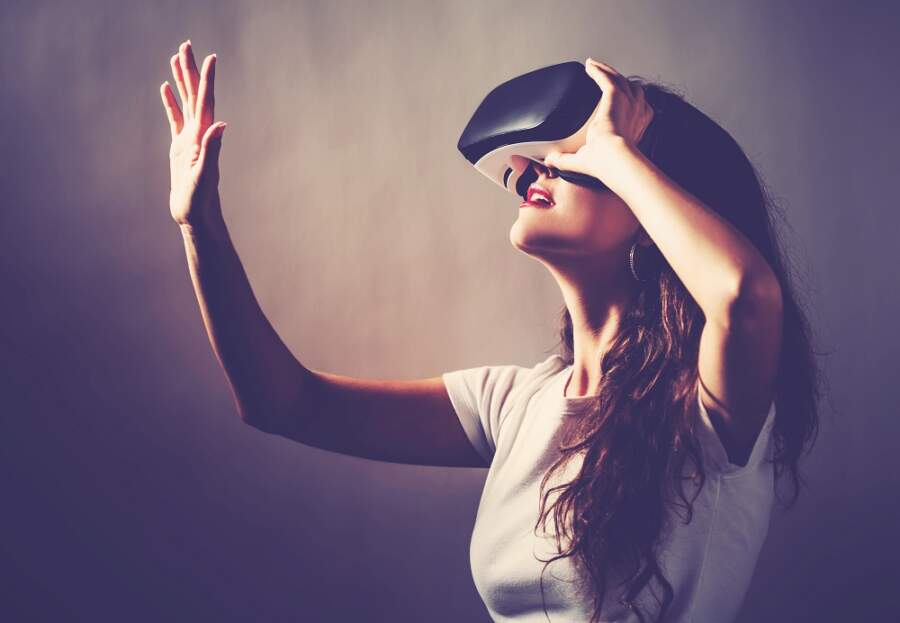
By: Andrew Hawken, CEO of Mesmerise
The Covid-19 pandemic has increased the general uptake of technology by businesses, with many increasingly relying on video calling and cooperating through platforms like Slack. But there is still an apprehension for many to engage with more emerging technologies, like augmented and virtual reality (AR and VR). As many businesses continue to support a remote and flexible style of working, they need to be taking adequate steps to ensure they are retaining a productive and engaged workforce. With what feels like never-ending days of video calls online, VR stands to be an engaging alternative for businesses worldwide.
Unlike the other forms of technology we currently use on a daily basis, VR can create a sense of co-presence that surpasses the quality of connection many of us experience – especially when we compare it to the likes of Zoom or Teams. It can make you feel like you are really in a space together, rather than talking through screens, where conversations can often feel awkward and unnatural.
The way in which VR can serve as a first-person experience is hugely beneficial to businesses, as it can transport people from the environment in which they are working into an entirely new destination in a matter of seconds. Through the wearing of a headset, your attention is diverted fully into a virtual environment. Working in VR is a more immersive and sensory process – where you can walk around spaces together and speak side-by-side like you would during a meeting in person.
But beyond providing a more engaging alternative to counteract our Zoom fatigue, what are the additional benefits VR can have for businesses?
VR can improve training and learning development
VR technology is already proving itself as an incredibly valuable training tool for both technical and soft skills; simulating reality so that employees involved in training exercises are immersed in an environment where they believe that what they are experiencing is actually happening. Ultimately, this provides a more engaging and realistic training experience, as opposed to simply learning through watching a video online or following guidance outlined in text. For example, it could be an exercise to monitor how investment professionals make simulated ESG decisions over the course of an anticipated period of time.
VR can connect colleagues and businesses, separated by proximal location
Global businesses are starting to take note of the positive impact that VR can have when it comes to connecting people across the world. As employees continue to work remotely, the ability for teams to be able to connect in a shared space, whilst retaining their ability to work from home, will be hugely beneficial for employee satisfaction and engagement. Additionally, bringing specialists from different parts of the world together to work on developing ideas is often sporadic and expensive due to the cost of travel and accommodation. Meetings in VR remove these barriers, allowing colleagues to connect and collaborate in a range of digital spaces that are purposely designed to stimulate creative thinking.
VR allows businesses to raise their profile with new business opportunities, without breaking the bank
One area less thought about is how VR can be a fantastic tool to engage audiences and leave a lasting impression when speaking to new business prospects. Companies have the creative control to select an environment that can be tailored to suit the interests of their prospect, while demonstrating that they are a business implementing the latest technologies to do business better.
New business meetings are also made much more accessible, with VR removing the need for travel or a physical meeting space.
VR is an environmentally sustainable and cost-effective way to interview potential hires
Furthermore, the recruitment process, as we currently understand it, can easily be transferred to VR as both parties are able to feel like they are meeting in person and have life-like conversations, helping establish if they are a good fit for the business whilst saving time and removing travel expenses. Some businesses may use VR to see how candidates react to specific scenarios, such as risk taking in an interview for an investment company.
Opportunities are also opened up for ‘remote’ interviews for those who previously might not have been able to travel with significant ease, such as individuals with disabilities. It also allows for less expense to be put towards traveling to and from an interview and, if a user already has a headset device at home, means less carbon emissions are incurred through the need to travel or send a headset to a user.
VR is versatile and can slot into almost every business
Ultimately, VR can work for any business. It’s a tool for company leaders to leave a lasting impression and embrace flexible working, shaking-up the traditional way of hosting meetings, conferences and other events, . Although it can appear daunting at first, businesses should be open-minded to exploring VR, because it will only serve to enhance their company and boost productivity across a workforce.


